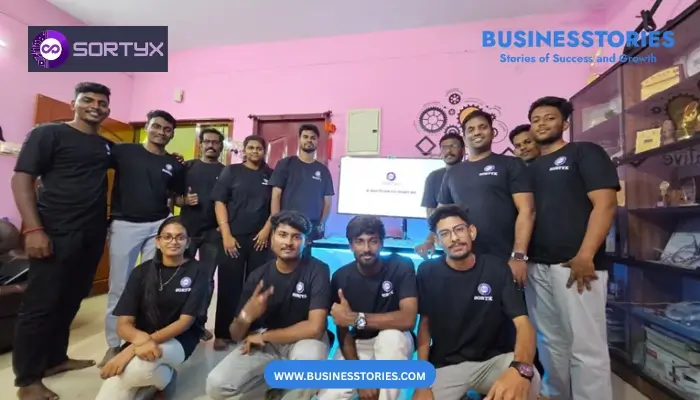Udupi is a quaint little town in the heart of coastal Karnataka, well known for its temples and delightful cuisine, but not quite synonymous with tech start-ups. Yet, from this unlikely location, Anup Pai and Ravi Haldipur are quietly reshaping the future of commerce in India. Their startup, eSamudaay, aims to decentralize digital trade, empowering small-town businesses and local entrepreneurs with tools to stay relevant in online commerce.
By choosing Udupi over Bengaluru or Mumbai, the founders have made a bold statement, technology and innovation do not have to be the privilege of urban centres. eSamudaay’s mission is to prove that India’s next wave of digital transformation can begin in its smaller cities.
The Founders – From Corporate Corridors to Local Lanes
Anup Pai, a technology professional with years of experience in financial services, had long observed how India’s digital economy was evolving. While platforms like Amazon and Flipkart were thriving, they centralized control in a way that often-left smaller players struggling to adapt. In conversations with local shopkeepers and small manufacturers, Pai recognized a common problem, digital adoption was either too expensive or too complex for these businesses.
Ravi Haldipur brought complementary expertise in operations, supply chains, and building business systems. Having worked extensively in corporate India, he understood how efficiency and scale could transform enterprises. Together, Pai and Haldipur believed that local businesses needed more than just an e-commerce listing — they needed to own their digital ecosystem.
Also Read: What is the Best Ecommerce Platform for Small Business?
The Vision – Decentralized Digital Commerce
eSamudaay’s core vision is simple yet transformative, create community-owned, self-sustaining digital marketplaces. Instead of relying on centralized platforms that dictate terms, local entrepreneurs can run their e-commerce business operations while still tapping into India’s ever-growing online consumer base.
The platform is aligned with ONDC (Open Network for Digital Commerce) and India Stack principles, ensuring interoperability and openness. This means that a store in Udupi can seamlessly transact with a buyer in Mysuru or even Delhi, without surrendering control over pricing, branding, or customer relationships.
“Innovation doesn’t belong to metros alone — with the right tools, even the quietest towns can lead a digital revolution.”
How eSamudaay Works – Business-in-a-Box for Local Enterprises
At its core, eSamudaay provides a “business-in-a-box” solution. Small businesses get access to a ready-made suite of digital tools for catalog management, real-time order processing, payments, and delivery coordination. Unlike large platforms, where sellers are one among millions, eSamudaay allows them to retain their identity, build their own customer base, and control their margins.
By integrating with ONDC, the platform ensures that even the smallest retailer can have nationwide visibility but still retain their local roots. The technology is lightweight, mobile-friendly, and designed with the realities of India’s tier-2 and tier-3 towns in mind.
Why Udupi? A Strategic and Symbolic Choice
Launching in Udupi was not an accident. For Pai and Haldipur, it was both a practical and philosophical decision. Udupi represents the kind of vibrant local economy that eSamudaay hopes to empower—rich in community spirit, small-scale entrepreneurship, and traditional industries. The city also provided a testing ground for developing a model that could be scaled across India’s diverse small-town landscapes.
By proving the concept in Udupi, the founders send a clear message – India’s small towns are not digital backwaters, but have their upside-down slices for innovation.
“Decentralization isn’t just a tech choice — it’s a commitment to putting power back in the hands of local entrepreneurs.”
The Social Impact – Empowering Local Communities
eSamudaay’s work goes beyond technology. The company actively engages with local chambers of commerce, self-help groups, and small entrepreneurs to build trust in digital tools. Most were businesses that had avoided selling goods online for fear of ending up beholden to or underbid by other, larger sellers.
Through training programs, workshops, and one-on-one consultations, eSamudaay helps shopkeepers understand how online channels can complement—not replace—their physical presence. This community-first approach builds digital confidence and ensures that technology adoption is sustainable.
Challenges in Building a Decentralized Platform
It has not been an easy journey. Convincing small business owners to embrace a new way of selling required patience and persistence. Many had negative experiences with centralized platforms, from high commissions to lack of transparency in payments.
Additionally, the challenge of creating awareness in smaller towns meant that marketing had to be hyper-local and relationship-driven. Pai and Haldipur spent countless hours meeting with traders, attending local events, and listening to concerns before introducing solutions.
One of the biggest technical challenges was to make sure eSamudaay’s platform could integrate with ONDC and be user-friendly at the same time. The concept necessitated heavy investment in simplifying interfaces, minimizing onboarding friction, and ensuring reliability even in areas with patchy internet connectivity.
Growth and Recognition
Despite being headquartered in a relatively small city, eSamudaay has started attracting national attention. The startup has expanded its presence to multiple towns across India, as part of which it has onboarded a steady network of retailers, service providers, and delivery partners.
The integration with ONDC is a key enabler for this growth, as it essentially allows sellers on eSamudaay to remain independent yet tap into a substantially larger customer base. Industry observers have noted eSamudaay as one of the few truly decentralization-driven players in India’s e-commerce ecosystem.
The Road Ahead – Scaling Without Losing the Local Touch
Looking forward, eSamudaay plans to scale its operations to dozens of small cities and towns across India. However, Pai and Haldipur are clear that growth will not come at the expense of their core philosophy. Every new city will be accompanied by a locally controlled digital marketplace, guided by community leaders and entrepreneurs.
The founders also see potential for eSamudaay’s model beyond India, especially in developing economies where small businesses face similar challenges in accessing digital markets.
Also Read: The Most Unique Reasons for Startup Failures
Lessons for Aspiring Entrepreneurs
The story of eSamudaay offers valuable lessons for founders those who are building startups outside major tech hubs. First, innovation can—and should—emerge from smaller towns, where real-world problems often remain unsolved by metro-focused businesses. Second, technology adoption is as much about trust and relationships as it is about software and features. Finally, building for inclusivity can create lasting social and economic impact while still being commercially viable.
Conclusion – A Quiet Revolution from Udupi
In a world of high-profile unicorns and urban success stories, eSamudaay is choosing to go down a different path. Anup Pai and Ravi Haldipur are proving that the future of digital commerce can be open, local, and community-driven. From Udupi’s quiet streets, they are spearheading a revolution that could redefine how small businesses engage with the digital economy—not as customers, but as empowered owners of their online destinies.
The journey is still in its early days, but the seeds of change have been planted. If eSamudaay succeeds, it will not just be a win for its founders; it will be a win for every small-town entrepreneur who dares to dream of competing on a digital stage while staying rooted in their community.



